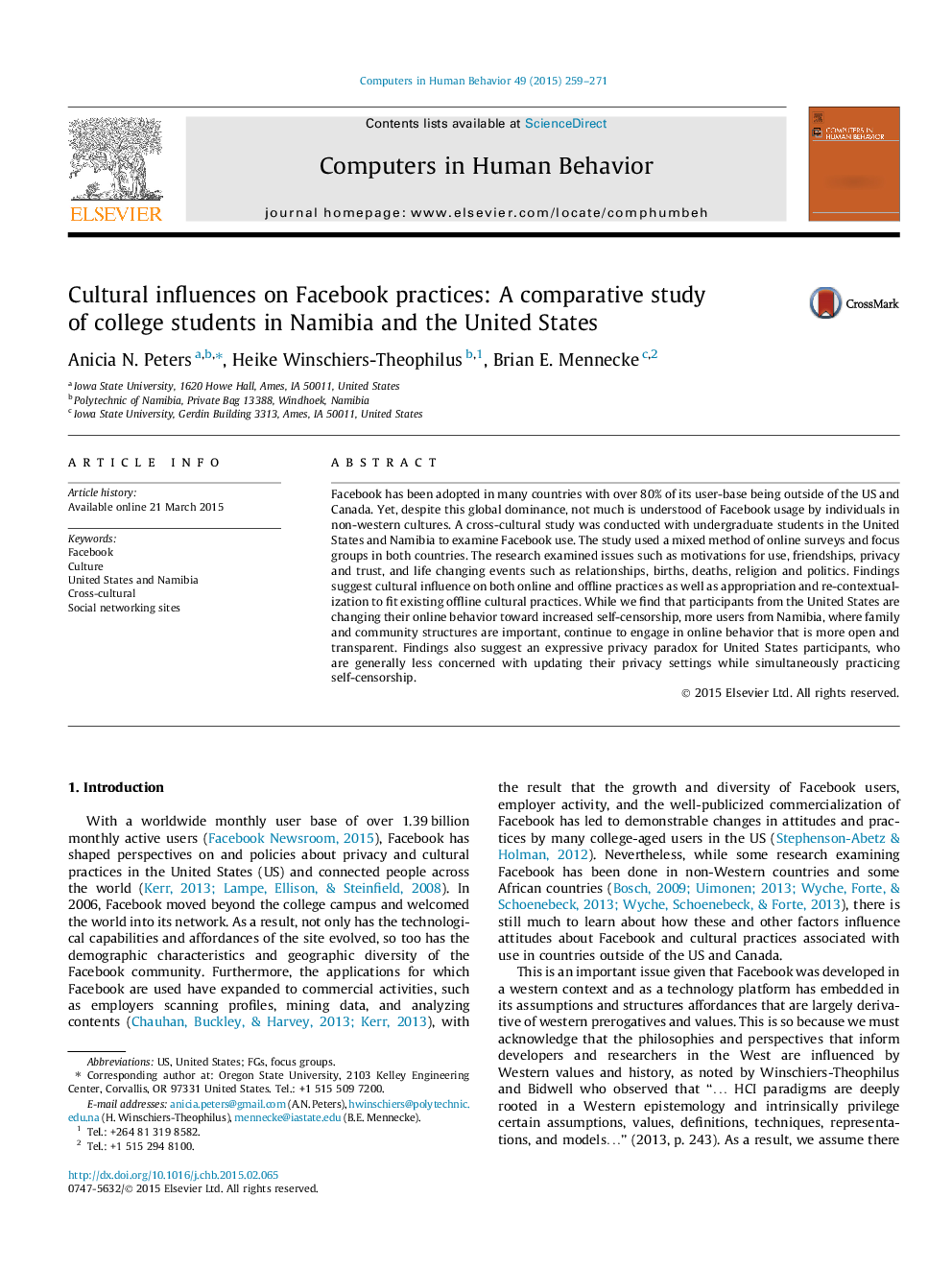| Article ID | Journal | Published Year | Pages | File Type |
|---|---|---|---|---|
| 350325 | Computers in Human Behavior | 2015 | 13 Pages |
•Facebook usage influences and are influenced by cultural practices.•In tightly-knit societies such as Namibia, we show that online behavior is more open and transparent.•Users in the United States are changing their online behavior to include greater self-censorship.•Employer activities on Facebook is driving user behavioral changes in the United States.•Facebook is the preferred social media site in both the United States and Namibia.
Facebook has been adopted in many countries with over 80% of its user-base being outside of the US and Canada. Yet, despite this global dominance, not much is understood of Facebook usage by individuals in non-western cultures. A cross-cultural study was conducted with undergraduate students in the United States and Namibia to examine Facebook use. The study used a mixed method of online surveys and focus groups in both countries. The research examined issues such as motivations for use, friendships, privacy and trust, and life changing events such as relationships, births, deaths, religion and politics. Findings suggest cultural influence on both online and offline practices as well as appropriation and re-contextualization to fit existing offline cultural practices. While we find that participants from the United States are changing their online behavior toward increased self-censorship, more users from Namibia, where family and community structures are important, continue to engage in online behavior that is more open and transparent. Findings also suggest an expressive privacy paradox for United States participants, who are generally less concerned with updating their privacy settings while simultaneously practicing self-censorship.
